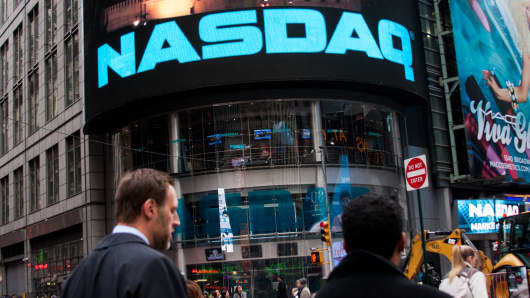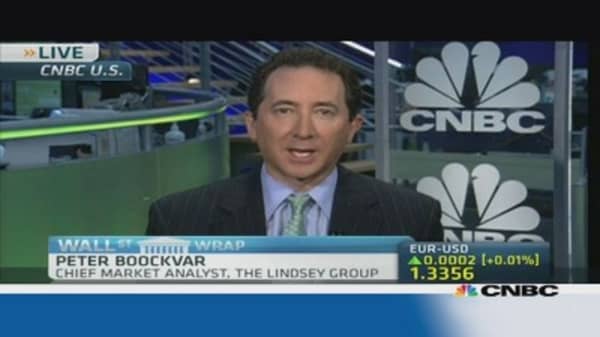A day after trading on the Nasdaq was halted for three hours, analysts say the stock exchange's credibility is likely to bear the brunt of the fall-out with the implications limited for broader trading in U.S. stocks.
Nasdaq on Thursday said a "connectivity issue between an exchange participant" had prompted it to stop trading. The trading halt was the longest shutdown at the exchange in recent memory, sparking confusion that impacted some of the biggest companies in the U.S. such as Apple and Facebook.
(Read more: Nasdaq: 'Connectivity issue' led to three-hour shutdown)
Analysts say Nasdaq will now have to work hard to restore its reputation as a stock exchange operator, with Thursday's incident following trading problems with the initial public offering (IPO) of Facebook in May last year.
"This is an issue about the Nasdaq and how it can it compete against other exchanges – it comes on top of the Facebook issue a while back," Peter Boockvar, chief market analyst at the consultancy The Lindsey Group, told CNBC Asia's "Squawk Box."
"If you're a company, you get to decide: do you want to list on the Nasdaq or the NYSE [New York Stock Exchange]? So from a competitive standpoint Nasdaq needs to do a lot of work to regain its reputation," he added.





